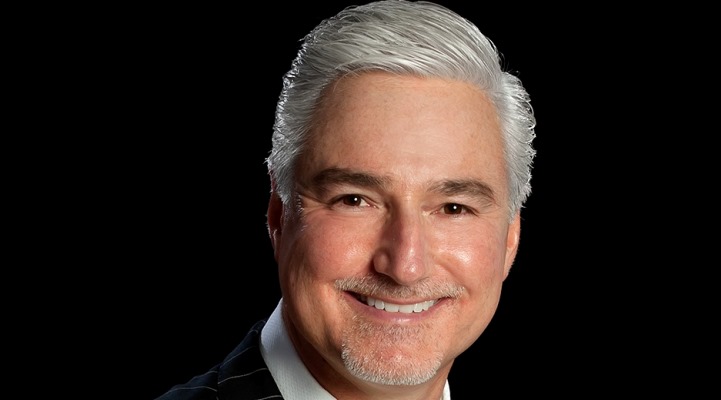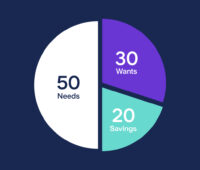

Whether you have been spending your post-college years paying off mounds of student debt or have been trudging your way through your first round of corporate jobs, it is easy to put off investing and saving for retirement for many reasons. It goes without saying that talking about saving for retirement is not the sexiest topic in the world. However, once you understand the true value of investing as early as possible, you will quickly be more smitten with your potential to have a sexier retirement than you ever imagined.
If you need to hear it from a professional, listen to the advice of David Giertz, a leader in the financial services industry with more than three years of experience in wealth management and financial advising. Giertz says that the most important piece of advice he gives to clients under 40 is to max out their retirement account contributions no matter what. Most companies give you the option to have contributions automatically deducted from your pay. This is the best option for most people because even with the most amount of financial discipline you can muster, it will always be easiest to part with money that never actually hits your bank account to begin with.

Giertz also recommends that young professionals focus on living a lifestyle that is below their means. The sooner you start developing sound financial habits, the easier it will be for you to maintain them through your career progressions. It can be extremely tempting to celebrate your significant raise with an upgraded ride. This is probably not the best use of your newfound salary, however, because a car is a depreciating asset and cannot earn you money in the long-term. As a general rule of thumb for major purchases, you should never take on a debt for an item that you cannot pay at least six months in advance. This guideline gives you enough of a cushion that you would be safe if you had to go without a salary for a brief period of time.
The next piece of crucial advice from Giertz is along those same lines. Giertz tells all of his clients that they should have an emergency cushion of at least six months for their necessary expenses in case that rainy day eventually comes. Given that the job market has not exactly bounced back to the pre-recession levels, it is better to be safe than sorry in this regard. To build your emergency fund quickly, Giertz tells his clients to try to cut back as much as possible on discretionary spending for as long as it takes to accumulate those funds.
This will give you peace of mind that you will not have to assume expensive credit card debt in the event that you lose your job or have a major unplanned expense. Credit card debt costs you more than just monthly interest payments. It can also damage your credit score and keep you from buying a house when you would like to.
These big mistakes will result in smaller Social Security checks
Finally, before you delve into the mysteries of day trading and feel the pressure to learn all the nuances of the stock market, Giertz reminds his clients that the real focus is on long-term wealth accumulation. As an investor, you should not necessarily be taking an active role in managing your investments because it requires a level of attention to detail and an in-depth knowledge of the markets that few people have the skill or desire to fully acquire.
Instead, you will probably be much better off in retirement if you find an investment adviser who is worthy of your trust to invest the majority of your savings. It may take some shopping around on your part to meet an investment adviser or financial planner who you feel comfortable trusting with your savings. There is nothing wrong with going to more than one consultation with to make sure that you get the right fit. Think of it as a form of speed dating, except that the stakes are literally your entire net worth. When you put it that way, investing a few hours in some initial conversations doesn’t seem like such a terrible idea. The best part is that you won’t even have to pay for dinner.
Retirement is usually thought of as having extra time, freedom, and the complete independence to do whatever you choose to do after decades of hard work. And of course, you deserve it. But are you ready?
According to financial experts like David Giertz, a 30 year veteran in the progressive financial services industry, there needs to be a finite strategy before you pack up the personal items from your cubicle in the office. There are a few apprehensions you should think about, which are designed to bring a more favorable outcome for retiring with peace of mind. As the former President of Nationwide Financials for U.S. sales and distribution operations, David helped to increase revenue for the company from $11 billion to $17 billion and consistently met profit and loss targets for the company, which included segments of private-sector retirement plans.
When first considering retirement, David Giertz recommends that you ask yourself an important question- Do you currently have the liquid resources to support your expected lifespan?
As you consider the answer to that question, you should know that the majority of people who do retire are relying on savings and typically do not have enough cash stashed away for the length of their life expectancy. The average life expectancy for U.S. males is age 79 whereas for females it’s age 81.
In order to establish if your current stream of cash flow will sustain your lifestyle for the next phase of your life in retirement, David Giertz says that you have to incorporate specific methods to calculate the precise number.
Minimum Distribution Method
Obtain access to the Required Minimum Distribution (RMD) tables from the Internal Revenue Service (IRS). You will find that despite your stern approach to saving, that the RMD table specifies exactly how much money a retiree must withdraw from any tax-advantage retirement account every year once they reach the age of 70 ½. The IRS stipulates that the expectancy is based on an average statistic, and because of that methodology, the withdraw calculations will rise with age. The Center for Retirement actually uses the age of 65 and recommends that a retiree choose that age along with the four percent rule, which is further explained below.
Percentage-Based Income Calculations
A common method for calculating retirement savings is by using the four percent rule, which is based on the theory that if a person retires and continually increases their savings for every four percent withdrawn, then they won’t run out of money. The formula takes into account inflation for subsequent years during the withdrawal time period. However, when considering lower-rate markets and economic downturns, the rule is flawed. A recent study found that there is a 57 percent chance that following that rule could leave a person completely broke. David Giertz found that, although the rule is simply not concrete, retiree’s should begin with no more than three percent. Once you’ve calculated those numbers based on current savings and expenses, there will be a clearer picture to determine if the nest egg will be secure enough to ride off into the sunset of retirement.
Structured Annuity Income
Although annuities will generally have higher fees, they are actually beneficial for structuring a positive cash flow. Annuities provide a guarantee for you to know exactly what can be depended on for income. An easy way to know if you will run out of cash is to amortize the cash payments and purchase one from a reliable insurer. It’s important to understand that a fixed annuity plan that has a deferred structure built-in will serve you better. This type of annuity structure will not only pay you a fixed amount on a regular basis, but it will also provide a stable asset to add to your overall financial portfolio. Typically, annuity payments are structured on a monthly basis; however, there are alternatives, based on your financial portfolio and the necessary timeframe needed for the income.
Healthcare Costs
With the assumption that you will be retiring at age 65 or later, more than likely you will not have any issues qualifying for Medicare. However, Medicare does not cover all of your healthcare needs. For starters, Medicare part B only covers 80 percent of doctors’ visits, leaving you on the hook for the remaining 20 percent. There is also a staggering amount of non-covered benefits, such as hearing aids, vision care, and nursing home care. Most retirees end up having to purchase Medigap insurance to cover the difference that Medicare does not cover. An analysis conducted by the Employee Benefit Research Institute concluded that it would take $370,000 to even have a 90 percent chance of covering all healthcare costs during retirement.
Additionally, income-subsidized coverage through the Affordable Care Act (ACA) may not be advantageous to you for qualifying, especially if you’ve already acquired other retirement assets. The never-ending repeal of ACA will also mean additional costs to healthcare, once Congress actually does take action.
Tax Consequences
Once you leave the workforce, it does not relieve you of any obligations for paying U.S. taxes. Although having a Roth IRA or Roth 401 (k) retirement plan does safeguard your deferred income, the moment you make a withdrawal, the money will be taxed as if it were regular income. Additionally, if you’re planning on receiving Social Security benefits, it’s important for you to know that you can be taxed from 50 percent to 85 percent on retirement income by the federal government as well as state government.
If all of this information sounds daunting, then perhaps 2018 is not the year for you to retire. Perhaps this is the year to seek out a subject matter expert on retirement. David Giertz recommends that you absorb yourself with all the resources and tools available while there is still time. According to David, making sure that you have enough retirement income begins with making smart money choices, right now, so that you lessen worries about running out of money when it really matters.
Follow David on Twitter for more tips @david_giertz.














Leave a Reply
1 Comment on "Even Bros Retire: Ohio Investment Advisor David Giertz Has Some Ideas To Get You Prepared"
You must be logged in to post a comment.
You must be logged in to post a comment.
What a fantastic read! I have second thoughts of going max for my retirement contribution, but now you’ve completely convinced me to do so. This will somehow give me a peace of mind. Kudos to you Mr. David Giertz!